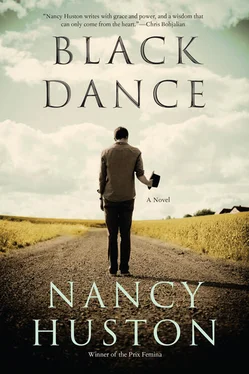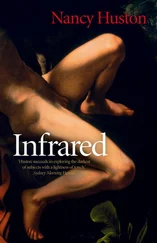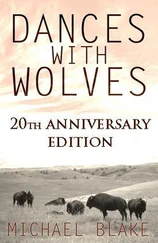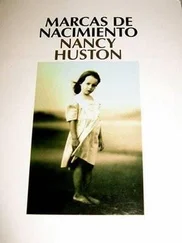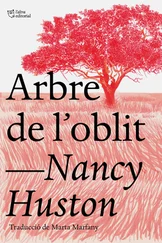Yeah, I know, Milo. Dead people are as real as we are. And characters are as real as we are, too. Bringing them alive is our job. In fact, it’s the only thing that justifies our being alive (for those of us who are). I agree, I agree, it’s just that — look — listen to me, there’s an information problem here, because we know stuff no one at that 1914 meeting of the Irish Volunteers could possibly have known. Right? To protect his reputation, John MacBride sued a Dublin newspaper for libel, and from then on the Irish public was kept in the dark about the details of Gonne’s case against him. No one ever learned that one night in Paris, when she was off at a political meeting, MacBride had come home blind drunk and attempted to rape every female in the household, including Françoise (the maid), Elaine (Maud’s father’s illegitimate daughter), and Iseult (Maud’s own illegitimate daughter). I mean, the facts get really complicated here. Okay, don’t get all het up, we can leave it in for now. We’ll figure something out.
NEXT SCENE: a solemn procession of students, scores of them, some taller, some smaller, but all male, bodies draped in black gowns and heads topped with flat caps, filing down the Trinity College walkway, up the monumental staircase and through into the grand auditorium. Judge and Mrs. Kerrigan, Neil’s parents, are in the audience.
(If we want to recognize them, we’ll need to establish them in the first scene — maybe, creeping home at dawn from his disastrous night on Talbot Street, the young man will not have been able to slip into bed unnoticed, maybe his mum will have been standing sternly waiting for him at the top of the staircase, maybe she will have called out sharply to his dad to interrupt his shaving and come take a look at this cur cringing down there in the entryway, its clothes disheveled and liquor on its breath. . Or maybe his younger sister, Dorothy, passing him on the front steps that morning as she strutted off to school, will have snitched on him. .)
Neil, his right foot bouncing with impatience on his left knee, is back at last night’s rally. Over and above the drone of official commencement ceremony speeches: In the great tradition of our forefathers. . Outstanding institution founded by Queen Elizabeth in 1592. . — he hears the rebels’ voices rising, hot with desperation.
“Our strikes have failed! Our men have gone back to work with no rise in wages! And now, with our young’uns dying of hunger and tuberculosis, half the city jobless, living in the dark off bread and tea, hundreds of pure, virtuous young Irish women reduced to chattel at Curragh for the fun and games of the British soldiers, those arrogant bastards still riding up and down our city, occupying our castle and our customhouse, running our lives and humiliating our quiet citizens with their shouted orders — now, as if that weren’t enough, they want to draft us yet again! We shall resist, we shall resist. ” (Chanted in Neil’s brain, the phrase rises and becomes a slogan.)
“Dear, dirty Dublin is starving! How many are we? Seventy thousand. Seventy thousand Cúchulainns! Seventy thousand heroes! Sure, up in Ulster they are more, and better armed. The buggars are talking about secession. Unionist buggars. Creeping, cruddy traitor coward bugs. They may be more, but justice is on our side. This cannot go on. Up with free Ireland!”
“ Neil Kerrigan.”
Hearing his name called, Neil mounts the steps to the stage and strides forward, as practiced earlier in the day, to shake the rector’s right hand and receive the paper cylinder of the LLB diploma from his left. The rector’s assistant sneaks up from behind to drape the ermine ribbon around his neck and Neil starts in surprise; the man accidentally knocks off his cap, he bends over to pick it up and his own falls off. Neil picks that one up and they bang heads straightening up, then sheepishly trade caps as the audience titters loudly for at last something has happened, at last they are no longer bored, and when Neil moves back to his seat grasping his diploma their applause is as wild as Victorian applause can be, i.e., audible. Neil’s sister Dorothy leans over and simpers into his ear, “You’re red as a beet, you know.”
CUT to the well-heeled crowd milling about in the great chandeliered reception hall after the ceremony. False smiles glued to their faces, Neil’s parents shake hands and accept congratulations left and right; Neil is repeatedly asked to reenact the little incident with the caps, to show how it went. We hear him seethe. Do they not know? Is it possible they do not know that Irish babies are dying of hunger a mere stone’s throw from here? That hundreds of our country’s best men are rotting in the jails of Britain for having dared to defend our dream of independence? That their world is about to go up in smoke?
A horse-drawn carriage takes the four Kerrigans home in silence. As they move through the front door, the maid calls out from the kitchen.
“A parcel came in the mail for you this morning, Mr. Neil, sir. Postmarked in London.”
“London?”
Neil’s hands tear at the package: a book. A book of stories.
Joyce’s Dubliners !
“Oh my God, then it actually has happened, Jimmy actually has managed to publish his tales.”
Envy and admiration vie in Neil as he quickly flips to the title page. .
(No, Milo. I’m sorry, but we can not go into the history of the publication of Dubliners at this point. No. Out of the question. You know too much. Shut up. Maybe Neil can tell his grandson about it years later, in Quebec. We’ll cross that bridge when we come to it. .)
The camera moves in close to read the words inscribed above and below the title in Joyce’s surprisingly graceful, legible hand:
Here at long last, fully seven years after my pregnant brain gave birth to them, are my Dubliners — a greedy, hypocritical, weak, silly, pusillanimous people who love to lie through their teeth and of whom, because of the vise of virtue in which our country is currently imprisoned, the truth can only be told from afar. I take the greatest pleasure in offering them to my friend Neil Kerrigan.
And in parentheses beneath the scribbled signature:
(Are you a man yet?)
“So he managed to get around the law after all,” says Judge Kerrigan, “by publishing them abroad.”
“What would that man know about Dubliners, I wonder?” scoffs Mrs. Kerrigan. “He’s been in Europe for a decade!”
“And why would he send them to you ?” Dorothy pipes up. “It’ll be a bad influence, won’t it, Mother?”
Neil’s hand moves in wonder on the page of a genuine published book in which his name has been inscribed by the author. . CUT.
Neil in a pool of warm lamplight in his bedroom that evening — deeply, utterly absorbed in the tales.
A few hours later: Neil talking to himself as he walks along the Liffey in the depths of night.
I shall someday write as well as or better than Jimmy Joyce or Willie Yeats. I think, oh no, I know I can. Practice law, yes, fine, no problem, for a few years — just to get myself established. But in the dark, in secret, I’ll soon start spinning magical webs of words to enchant the masses. I’m only twenty-two. No writer is world famous at twenty-two — with the possible exception of Rimbaud, but he doesn’t count because he retired from literature at age nineteen to smuggle weapons to Abyssinia. I’m only twenty-two, and though Jimmy Joyce is fully ten years older than I, his first real book (apart from slim volumes of student poetry) has just now come out, and is not an extraordinarily fat one, either. Besides, he’s not serious competition. He’s gone off to Italy or Yugoslavia or wherever and will probably, now that he’s got Dubliners out of his system, forget all about his native land. I’ve been training since the day I was born. The pablum of priests my mother fed me was spiked by my teachers with the heady brandy of Irish lore, I guzzled down Shakespeare, Milton and Browning on my own, and now I feel ripe and ready. The fruit of my imagination is fairly exploding with seed. Semen and sense! A billion teeming, bubbling words in the cerebellum like a billion sperms in the ballocks — fertile, gusty, gutsy, true. I’m merely waiting for the event that will jerk my brain into gear so it can start spewing out lengthy chapters filled with violence and beauty, philosophy and pain.
Читать дальше
